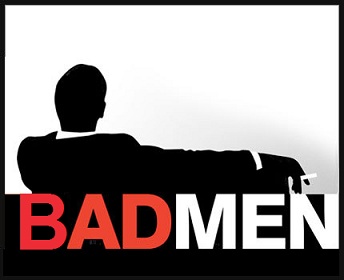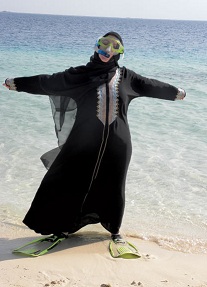Why The Latest Season Of Mad Men Blows

Dr. Faye Miller, a marketing psychologist who specializes in figuring out the consumer's hidden motivations, is offering her sympathy to Don Draper for his divorce. "Don't worry, she says, "you'll be married in a year." "What?" he says. "Oh, I'm sorry," she replies, "no one likes to think they're a type."
I tried to switch the channel to A Serbian Film but it hadn't come out yet. I'll accept that Don Draper is a type, but when did he become a caricature of a type? End of Season 3?
Gone are the subtle distinctions between a womanizing bastard who seduces everyone and the womanizing bastard who seduces everyone except certain women because you shouldn't. Gone are any subtleties whatsoever, this is a CBS spinoff about good guys vs. bad guys. (Spoiler: the bad guys are wearing ties.)
Here's a race example: In Season 1 there was was a scene in which young Pete Campbell is trying to get some insight into the African American market by asking the elevator operator a few "innocuous" questions, but the operator ain't going out like that. He knows that any conversation with a white executive can go all kinds of sideways, and he has to trickily be respectful while not saying a damn thing. It's a great scene, discussed from many perspectives all over the internet.
Here's the Season 4 approach to this: four white guys are sitting at a Christmas party, and one says, "if they pass civil rights, it'll be a slippery slope." That's all he says. Get it? White male privilege. Never mind that the phrase "slippery slope" wasn't in popular rotation in the sixties-- it's only there to call to mind its use by the cast of Fox News and The Supreme Court who cry "slippery slope" at every progressive agenda. Got it.
It only gets better, i.e. worse. Here is another guy's immediate response to that comment: "If they pass Medicare, they won't stop until they ban personal property." Because white men are too dumb to embrace Medicare. Ok. But how is that a response to the civil rights comment? Who has conversations like that? Not even the Fox News improv troupe talk in disconnected non-sequitors. "Michael Jordan was the best ever." "I punch animals." "My eyes smell like barbecue!"
And I'll wager a bottle of rum on this: the writers must have thought they were pretty clever when they wrote the Medicare line to be delivered by guy who played the Chief of Staff on ER.
 Ooooohhh. I get it. It's post-modern, or something.
Ooooohhh. I get it. It's post-modern, or something.
White people hating on white people, and its derivatives. An old story, frequently played out on NPR, NYT, or wherever this photo is considered interesting: I'll help you with the context: the brown stuff at the bottom is Saudi Arabia and the black thing in the middle is Maureen Dowd. No, I'm not kidding. Yes, she is great.
I'll help you with the context: the brown stuff at the bottom is Saudi Arabia and the black thing in the middle is Maureen Dowd. No, I'm not kidding. Yes, she is great.
Whites hating whites doesn't mean they like blacks, of course, or Arabs or anyone else. It's all about the hate, that's what drives people, not a love of the oppressed but hatred of "oppressors." If that generates the same outcome I guess it's a viable social policy, but it's hard for me to buy into what leads to cognitive dissonance, as with poor Maureen Dowd: she hates America for what we do to them but hates them for what they do to women. After a night at the Ritz Carlton the solution she comes up with is to agree to the abaya but wear a snorkel at the same time. That'll show 'em.
II.
The often cited draw of Mad Men was its authenticity (uh oh), including character authenticity. The elevator scene shows that Campbell can be ignorant but not malicious-- he thinks he's just getting information, but is reinforcing the social disparity between them. What Campbell asked that elevator operator is on the order of, "hey, what's up with you people and chicken? How can I get you to buy more of it?" which is simultaneously a societal prejudice and a personal observation. That's what makes the scene interesting. Quoting Dave Chappelle: "all this time I thought I liked chicken because it was delicious, turns out I was genetically predisposed to liking it."
Campbell wasn't being purposely demeaning, he was being Campbell, he didn't understand that merely bringing up the question is an act of aggression. That's "show don't tell" writing.
What would have made it very racist (and unbelievable) was if he pretended not to be aware of societal prejudices: "so, tell me... I love chicken... what do you think of chicken...?"
This is where Mad Men is failing. I know racism and sexism are bad, I know they existed, I don't need this show to tell me that. But was every white guy who didn't vote for Kennedy a gigantic POS? I want you to figure out how to show me how a man in the 1960s can simultaneously be a good person yet still think women are inferior; how he can be a womanizing pig who still respects women enough to give one the coveted office. In other words, I want the character depth of Season 1, not an off-Broadway rendition of The Huffington Post.
III.
The examples are endless: the (parody of the) egotistical client who makes demeans the advertisers on purpose, because he can. Do you think he gets inappropriate with one of the oblivious wives who thinks he's funny/charming/handsome, while the husband stares on helplessly? True/False: is cuckolding implied? Yay obvious.
Or the fall down drunk Don Draper who has sex with his wide-eyed secretary who is just so thrilled to be with this sloppy mess, and so surprised that he would dismiss her the next day. "He was too drunk to see the couch and he didn't even pull his pants down, but he did manage to ejaculate before he even got hard, so I'm ordering dinnerware." Hint: this means men are pigs.
The problem with the current season's approach to the characters is it's using them to describe the era, not using the era to describe the characters. I know what happened in the 1960s, I don't know what happened to Peggy. Tell me that. Season 1 Peggy was exploited and exploiting, I couldn't tell if I wanted to strangle her or Campbell and so I was hooked-- what kind of a woman is this? According to Season 4, she's a budding superhero. Are you telling me they had superheros in the 1960s?
The writers of Mad Men owe their responsibility to the characters, that's why people watch the show. When you pass on this responsibility in order to tackle social issues, then you better have something new to say about them, otherwise why do we care? If I want a 3rd grade approach to gender equality, I have Eat Pray Love.
---
http://twitter.com/thelastpsych
41 Comments